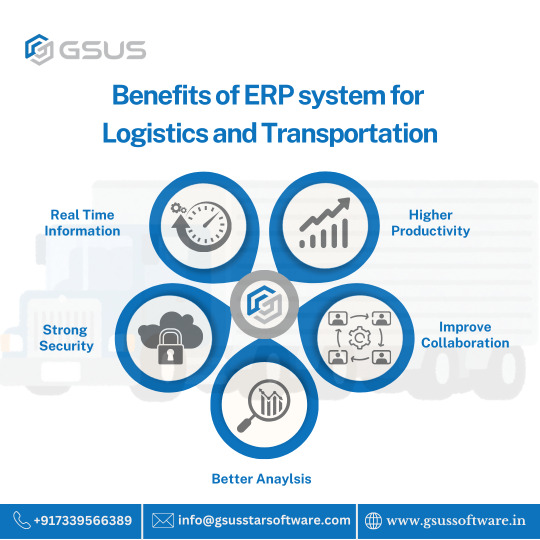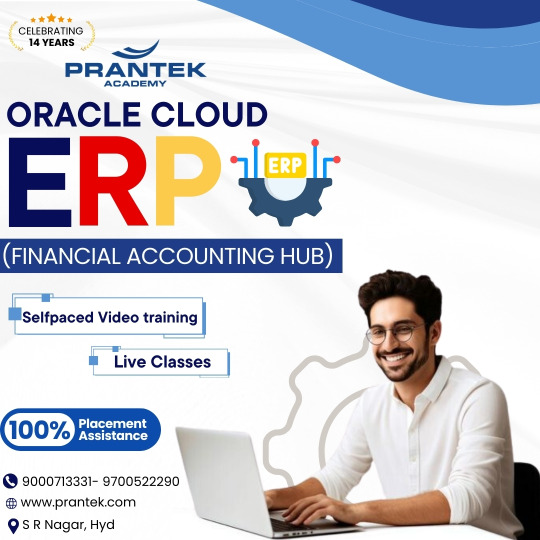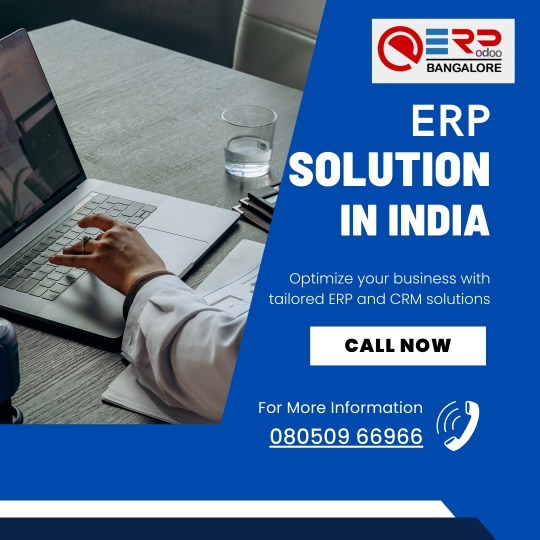#ERPImplementation
Explore tagged Tumblr posts
Text

Level up your business with Magtec ERP
#erpsoftware#softwareerp#erp#erpsystem#erpsolutions#erpsoftwaresolutions#MagtecERP#erpsolution#erpimplementation#erpconsultant#erpintegration#erpsystems#erpservices#erpdevelopment#erpselection#erpformanufacturing#erpsales
3 notes
·
View notes
Text

Elevate your online business with our custom Odoo eCommerce mobile app development. Reach your customers on the go and provide a seamless shopping experience.
Contact us now to bring your business to the fingertips of your audience!
Get in touch with our experts https://bit.ly/e-commerce-mobile-app
Email:- [email protected]
WhatsApp:- +91 88666 42306
#bizoples#odoo#odoo17#odooecommerce#odooMobileApp#mobileapplication#mobileappdevelopment#odooimplementation#erpimplementation#implementationservices#odoocustomization#odoodevelopment#odooerpmodules#odoowebsite#odooappstore#odooapps
3 notes
·
View notes
Text

Drowning in Business Chaos? Matiyas ERP can be your life raft! We help you choose and implement from a range of functional ERP modules to automate tasks, and streamline operations across your entire business.
Finance? We got it. Inventory? Covered. Sales & Supply Chain? Absolutely!
Stop struggling, start thriving! DM us for a free consultation and see how Matiyas ERP can help you conquer complexity.
#ERPNext#Frappe#BusinessAutomation#DigitalTransformation#matiyaserpnext#frappe#matiyassolutions#erpnextserviceprovider#erpsoftware#erpprograms#openerpsoftware#erpimplementation#benefitsoferp#erpnextpartner#ERPNextSoftware#ERPNextProjectManagement#SoftwareNGO#ERPforRetailIndustry#BestERPSoftwareinIndia#ERPImplementers#PharmaSalesSoftware#BestERPSystems#ERPCompaniesinIndia#BestERPSoftware#ERPTradingSystem#BestERPforManufacturing#NonprofitAccountingSoftware#DonorManagementSoftware#DataMigrationServices#ERPNextServiceProvider
2 notes
·
View notes
Text
ERP Implementation Solutions | Parkar Accounting – Streamline Your Business Operations
Optimize your business processes with ERP implementation solutions from Parkar Accounting. Our expert team ensures seamless integration, improved efficiency, and data-driven decision-making with customized Enterprise Resource Planning (ERP) solutions. From financial management to inventory control, we help businesses streamline operations, enhance productivity, and achieve scalability. Whether you're upgrading an existing system or implementing ERP from scratch, we provide end-to-end support tailored to your needs.
0 notes
Text

Most firms, in this fast-paced digital environment, need to fight a war just to keep abreast. Of all of these, the choice of an Enterprise Resource Planning (ERP) system is going to decide whether they are likely to come out victorious in this competition. In Singapore, there are three major players of ERP to be considered between businesses: SAP, Odoo, and Oracle. Each offers its unique features and its relative benefits based on the specific needs and size and budget of the business.
SAP is the powerhouse ERP for large enterprises. Scalability is very high and best suited for big companies with huge operations and global compliance, but it does come with a hefty price tag in terms of implementation, takes ages to set up, and has a steep learning curve. If you operate a big organization in Singapore, all its features are broad enough to manage the complexity of operations, but get ready to spend.
Odoo is an open-source flexible ERP solution for small to medium-sized businesses. Modular in design, it lets businesses pick only the features they need, allowing for a relatively affordable purchase. Odoo is user-friendly and customizable, though not necessarily the best choice when it comes to scaling very large enterprises. It's ideal for startups or growing companies in Singapore looking for a cost-effective solution.
Oracle ERP Cloud is the entire suite of integrated business functions. It comprises finance, human resource, and supply chain management with advanced AI and machine learning along with scalable features in cloud environments. Perfectly suited for mid-sized and large companies to bring cutting-edge technology, the platform provides complete seamless integration, great financial management capabilities, and still has significant high licensing fees along with the process of long setups.
Ultimately, the right ERP depends on your business size, budget, and specific needs. SAP is ideal for large businesses with complex operations, Odoo works well for smaller businesses seeking affordability and flexibility, and Oracle is best for those looking for advanced tech features with strong integration capabilities.
At SerpentCS, we specialize in providing ERP services in Singapore. Our team offers expertise in all ERP solutions - Odoo, SAP, Oracle, and any other ideal system that your business needs in Singapore. Reach out today to know how we could help you drive growth through smoother operations.
0 notes
Text
How ERP Optimizes Production Planning & Inventory in Manufacturing
The manufacturing world is changing quickly, and efficiency and accuracy are thought to maintain competitiveness. One of the most effective ways to achieve both is by using an ERP (Enterprise Resource Planning) system. ERP is a software application for integrating a variety of business processes into a singular system-such as production planning and inventory management. The focus of this blog is how an ERP optimizes these functional aspects in manufacturing and what benefits can be derived from it.

Optimizing Production Planning with ERP
One of the major benefits of ERP systems is their ability to improve production planning. ERP helps manufacturers create more accurate and efficient production plans by providing real-time visibility into inventory levels, raw material availability, and production schedules. The system automatically generates work orders, allocates resources, and schedules machine usage based on current demand and available capacity, thereby minimizing downtime and production delays. ERP also enhances the forecasting process because it analyzes history and trends so that production does not go above customer demand. This results in fewer disruptions and better resource utilization.
Enhancing Inventory Management
Another area where ERP makes a strong impact is on effective inventory management. ERP provides real-time tracking of inventory with automated tracking so that manufacturers have the right amount of materials in stock at any given time. The system, therefore, minimizes the effects of stock outs and overstocking, two common causes of production disruption and increased costs. ERP solutions further optimize reordering processes by automatically generating purchase orders when stock levels reach predefined thresholds. This reduces the chances of having more inventory and their associated storage costs while improving the cash flow.
Benefits of ERP for Manufacturing
Increased Efficiency: The routine work such as inventory tracking and production scheduling is automated by the ERP systems, freeing up valuable time for employees to focus on strategic decision-making.
Cost Savings :The manufacturer can reduce wastes, reduce holding costs of inventory, and increase profits with effective inventories and optimized production planning.
Better Decision-making: Realtime data and cutting-edge analytics create an opportunity in the manufacturing of better decision making that enhances their overall business performances.
Scalability: ERP systems scale with the business, so that manufacturers can increase operations without compromising efficiency.
Improved Customer Satisfaction: With efficient operations and precise production schedules, manufacturers can respond to customer demand promptly, leading to higher satisfaction and repeat business.
Final Thoughts
However, with the integration of real-time data, better forecasting, and synchronization of scheduling and inventory control, ERP solutions can help manufacturers improve their productivity, reduce costs, and improve their bottom lines. With the evolving nature of the manufacturing industry, ERP remains a hall mark of operating efficiently and effectively in business. Therefore, investing in an ERP system would be a shrewd and strategic decision for manufacturers to head away from competition.
#ERPSystems#ProductionPlanning#InventoryManagement#ManufacturingEfficiency#ERPForManufacturing#SupplyChainOptimization#ManufacturingSolutions#BusinessAutomation#LeanManufacturing#ManufacturingTechnology#RealTimeData#SupplyChainManagement#ERPImplementation#InventoryOptimization#BusinessSoftware
0 notes
Text
0 notes
Text

Congratulations to the Texas Association of Counties for completing their ERP implementation!
Undergoing an ERP implementation is no small feat, with many moving pieces and time consuming tasks involved in making sure it goes smoothly. EAG has enjoyed working with the team at Texas Association of Counties, and look forward to continue supporting their efforts to grow!
0 notes
Text
Top Odoo Implementation Experts in Germany
Introduction
Because of its extensive feature set, which includes everything from sales and finance to inventory and human resources, Odoo has become a very popular choice for organizations all around the world. Working with seasoned Odoo implementation experts in Germany is crucial for companies looking to successfully adopt Odoo. These professionals make that the software is set up correctly, connected with other business systems, and tailored to the particular requirements of the company. Among the top Odoo implementation specialists in Germany, iCreativez Technology is distinguished by its outstanding proficiency and track record of producing ERP solutions that work.
Why Choose iCreativez Technology for Odoo Implementation?
iCreativez Technology is a well-regarded Odoo implementation expert known for offering comprehensive services designed to help businesses maximize the potential of the Odoo platform. Whether a company is new to Odoo or looking to upgrade from a previous ERP system, iCreativez provides end-to-end support, ensuring a seamless and effective implementation. Their team of Odoo-certified consultants has extensive experience in tailoring Odoo to the unique needs of each client, ensuring that the software delivers optimal value.
Key Services Offered by iCreativez Technology
Consultation and Needs Assessment The first step in any successful Odoo implementation is understanding the unique requirements of the business. iCreativez Technology works closely with clients to conduct a thorough assessment of their existing processes and identify areas where Odoo can help streamline operations. This consultation helps determine the right modules, configurations, and integrations required to meet business goals.
Odoo Customization and Integration iCreativez Technology specializes in customizing Odoo to fit the unique workflows of each organization. Whether a company needs custom-built features or integration with other systems, iCreativez ensures that Odoo is tailored to meet specific needs. Their expertise in customization allows them to enhance the functionality of Odoo, ensuring it becomes a powerful tool that drives business efficiency.
Ongoing Support and Maintenance Successful Odoo implementation doesn’t end after deployment. iCreativez Technology offers continuous support and maintenance to ensure that the ERP system remains up-to-date and functional. Their team is always available to assist with troubleshooting, updates, and optimizations, ensuring businesses can continue to benefit from their Odoo system without disruptions.
Training for Effective Adoption For an Odoo implementation to succeed, it’s crucial that employees are properly trained to use the system. iCreativez Technology provides comprehensive training sessions, helping businesses in Germany ensure that their teams are fully equipped to use Odoo effectively. This training is tailored to each organization’s specific setup, helping users understand the system’s features and functionalities.
Conclusion
When searching for Odoo implementation experts in Germany, iCreativez Technology is a trusted partner that offers a comprehensive, customer-centric approach to ERP solutions. Their expertise in Odoo consultation, customization, integration, and ongoing support ensures that businesses can successfully implement Odoo ERP and fully leverage its potential. With a focus on providing tailored solutions and ensuring smooth adoption, iCreativez Technology stands out as a leading choice for businesses in Germany looking to optimize their operations through Odoo.
#OdooImplementation#OdooExperts#ERPImplementation#OdooGermany#iCreativezTechnology#OdooConsulting#OdooSolutions#OdooCustomization#BusinessERP#DigitalTransformation#ERPforBusiness#OdooExpertsInGermany#OdooPartner#TechConsulting
1 note
·
View note
Text
Why Manufacturing Industries Need ERP Systems for Material and Production Planning?

Enhancing Material and Production Planning with ERP Systems in Manufacturing
Manufacturing industries operate in a dynamic environment where efficiency and precision are paramount. To meet these demands, adopting a robust manufacturing ERP system is crucial for effective material and production planning.
An ERP system for manufacturing industry provides an integrated solution that connects all aspects of the business, from procurement and inventory management to production and distribution. This comprehensive approach ensures seamless operations and improved decision-making. Tools like ERPNext manufacturing are tailored to address the unique challenges of production-based industries, making them a top choice for manufacturers.
Manufacturing enterprise resource planning systems play a vital role in resource allocation, scheduling, and real-time tracking. By utilizing industrial ERP solutions, manufacturers gain visibility into their operations, enabling them to forecast demand accurately and avoid bottlenecks. These systems are particularly beneficial for optimizing supply chains and reducing material wastage.
Small businesses can also leverage the power of manufacturing software for small business to compete with larger players. Solutions such as business manufacturing software and manufacturing ERP software are designed to streamline operations and enhance productivity for small-scale manufacturers. The implementation of manufacturing enterprise resource planning software allows these businesses to automate routine tasks, manage resources effectively, and maintain high-quality production standards.
With a dedicated manufacturing resource planning system, manufacturers can ensure that raw materials are always available when needed, preventing costly production delays. The integration of production ERP software allows businesses to track each stage of the production process, ensuring timely delivery and quality assurance. These tools are essential for meeting customer expectations and staying ahead in the market.
Implementing ERP software for manufacturing industry also fosters compliance with industry regulations and minimizes operational risks. Whether for large enterprises or smaller ventures, a robust ERP software manufacturing industry solution provides the scalability and flexibility needed to adapt to changing market demands.
#ManufacturingERP#ERPSystem#ProductionPlanning#ERPNextManufacturing#IndustrialERP#ManufacturingSoftware#ERPForManufacturing#BusinessManufacturingSoftware#EnterpriseResourcePlanning#MaterialPlanning#SmallBusinessSolutions#ManufacturingEfficiency#ERPImplementation#SmartManufacturing#DigitalTransformation
0 notes
Text

Maximize Efficiency in Logistics & Transportation with an ERP System!
An ERP system gives you:
🔹 Full visibility across the supply chain
🔹 Streamlined processes & reduced delays
🔹 Cost-effective route planning
🔹 Real-time updates & tracking
Get ahead of the competition with smart technology!
Reach us at www.gsussoftware.in / [email protected]
#gsussoftware#cutomizedapplication#customappdevelopment#erpimplementation#businessgrowth#BusinessInnovation
0 notes
Text

With 14 years of expertise, Prantek Academy offers specialized training in Oracle Cloud ERP (Financial Accounting Hub), backed by 100% placement assistance. Join us to gain in-depth knowledge and secure a promising career in ERP! For more details, click here!
#OracleERPTraining#OracleTraining#ERPTraining#OracleFusion#OracleCloud#ERPImplementation#OracleCertification#BusinessSoftwareTraining#ERPExperts#OracleConsulting#KnowledgeEnhancement#CoursePrograms#CertifiedTraining#StudentSuccess#WorkforceDevelopment#SkillBuilding
0 notes
Text

ERP solution in India
Empowering businesses across India with robust, efficient, and user-friendly ERP solutions.
Contact us today for a customized ERP solution crafted to elevate your operations and drive your business forward!
📞 +91-8050966966
🌐 www.erpbangalore.com
ERP Bangalore specializes in a wide range of ERP services, including:
✅ ERP solution in India ✅ ERP for Financial Services ✅ ERP for Cement Industry ✅ ERP Software for Packaging Industry ✅ Inventory Distribution Process ✅ ERP Software for Supply Chain Management ✅ CRM Software for Healthcare ✅ Odoo Implementation Services with Browseinfo ✅ODOO Training Courses ✅ Professional Odoo Integration Services!
#ERP#CRM#Development#Developer#Software#Odoo#Zoho#Bangalore#Karnataka#india#Erpbangalore#erpsoftwaresolutions#erpimplementation#crmsolutions#crmtools#business#christmas2021#christmascelebrations#newyearcelebration#newyear2022#happynewyear2022#UlsoorLake#RichmondCircle#LangfordTown#VictoriaLayout#ShantiNagar#Jakkasandra#Ejipura#Bommanahalli#KudluGate
0 notes
Text
Best ERP Implementation Company
Best ERP Implementation Company - Banibro IT Solutions
Banibro IT Solutions is your go-to partner for top-notch ERP implementation services, specializing in Odoo ERP solutions. Recognized as a leading provider, we empower businesses with tailored ERP systems designed to streamline operations, enhance productivity, and foster growth.
Our Odoo services include end-to-end implementation, customization, integration, training, and ongoing support, ensuring your business achieves maximum efficiency and ROI. Choose Banibro IT Solutions for expert guidance, innovative solutions, and a seamless ERP transformation experience. Transform your business processes with confidence and expertise—partner with Banibro IT Solutions today!
0 notes
Text
ERP Implementation Solutions | Streamline Your Business with Parkar Accounting
Optimize your business operations with ERP implementation solutions from Parkar Accounting! Our experts deliver seamless enterprise resource planning (ERP) integration, helping you streamline processes, improve efficiency, and enhance decision-making. Whether you need a customized ERP system or an upgrade, we ensure a smooth transition with minimal disruption.
🚀 Scalable Solutions | 🔍 Data-Driven Insights | ✅ Expert Support
📞 Contact us today for a consultation!
0 notes
Text
Odoo ERP Pricing Explained: Flexible Plans for Every Business Need
Confused about Odoo ERP pricing? This guide breaks down the flexible and scalable pricing models of Odoo, helping you choose the right plan for your business. Learn about the user-based licensing structure, where you only pay for the number of users, and explore the differences between Odoo Online, Odoo.sh, and On-Premise hosting options. Understand the cost implications of customization, data migration, and ongoing support, and discover why hiring Odoo Implementation Partners can save you time and money. Whether you're considering the Community Edition for its open-source flexibility or the Enterprise Edition for advanced features, this guide will help you make an informed decision.
Key Topics Covered:
Odoo Pricing Models: User-Based Licensing and Modular Plans
Hosting Options: Odoo Online, Odoo.sh, and On-Premise
Cost Factors: Customization, Data Migration, and Training
Odoo Community vs. Enterprise: Which Edition is Right for You?
Benefits of Odoo Implementation Partners
Transparent Pricing: No Hidden Costs
#OdooPricing#ERPSoftware#OdooCommunity#OdooEnterprise#CloudERP#OnPremiseERP#OdooPartners#ERPImplementation#SMEs#ERPForBusiness
0 notes